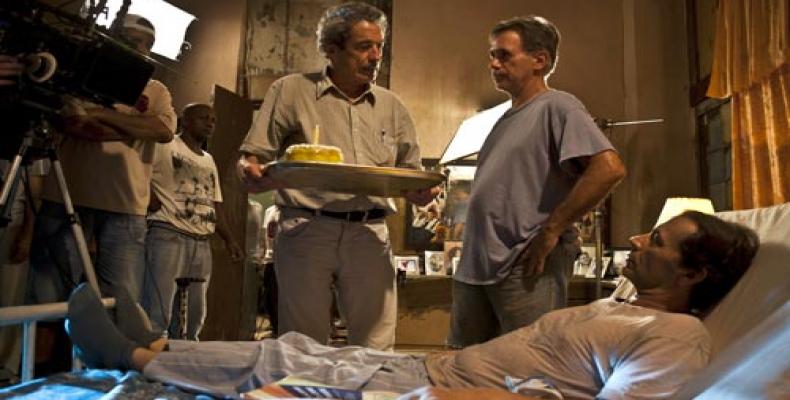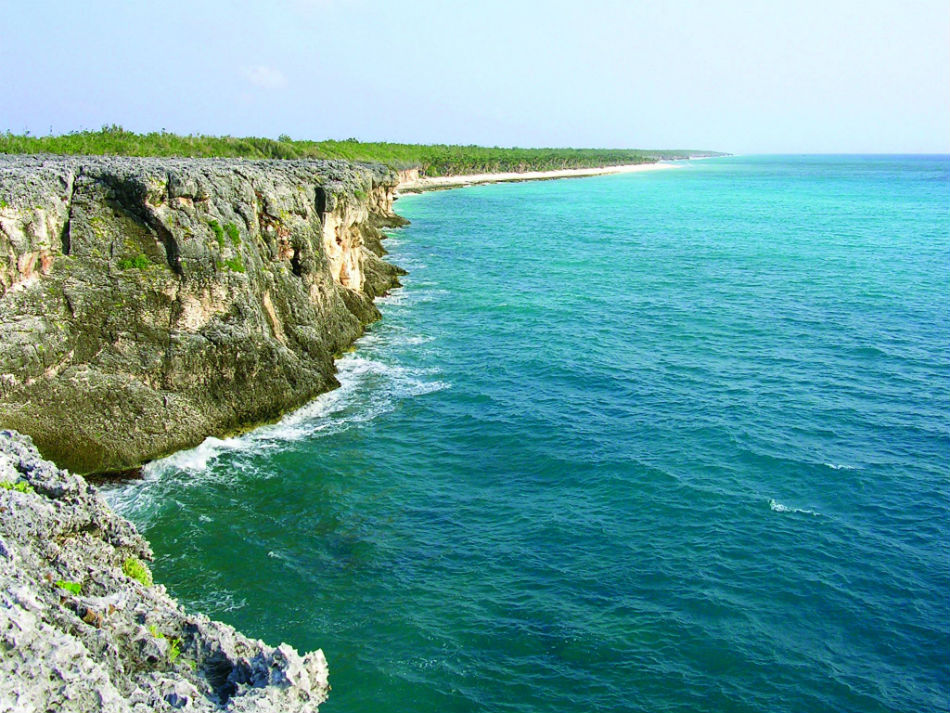Surpassed, in terms of the number of applications to the Platinum Awards, only for the Chilean One fantastic woman and for the Argentinean Zama, the Cuban film counts no less than seven nominations, which places it, peremptorily, among the best Ibero-American films of the last years.
The film, which had a rather lukewarm reception in Cuba, and which has critically received divided opinions, is among the most recognized Cuban productions in this decade, perhaps because it manages to define the indefinable mental state of many Cubans in this era. starting from the contrast between the characters played, masterfully, Jorge Martínez and Patricio Wood.
The Platinum Awards recognized her in the best film categories (strong competition from the Chilean Una mujer fantástica, Oscar winner), better direction (Fernando Pérez faces the Spaniards Alex de la Iglesia and Isabel Coixet, and the Argentinian Lucrecia Martel) , better script and better male performance (Jorge Martínez battles with monsters like Javier Bardem for Loving Pablo, Alfredo Castro for Los perros or Daniel Giménez Cacho for Zama).
To the four nominations mentioned above, Últimos días en La Habana joined three others: montage (Rodolfo Barros), sound (Sheila Pool) and photography, a line in which maestro Raúl Pérez Ureta confronts the image designers of Una mujer fantastic, The mountain range and Zama.
The Cuban cinema reached another triumph in the Platinum Awards thanks to the nomination of the successful ceiling, opera prima by Patricia Ramos, precisely in the category of Best First Feature of Ibero-American Fiction, together with the Colombian La Defensa del Dragon, the Spanish La Call and Summer 1993, Argentina’s The Bride of the Desert, and the Chilean Mala junta.
The ceiling was also nominated in the category of best music, a category in which the Cubans Juan Antonio Leyva and Magda Rosa Galbán contend with the Spaniards Alberto Iglesias and Alfonso de Vilallonga and the Brazilian Plinio Profeta.
‘Últimas días en La Habana’ and ‘El techo’ restore the triumphant participation of Cuban cinema in the Platinum Awards after a couple of years with a much less prominent participation.
The Platinum Prizes of Ibero-American Cinema are awards created by the Rights Management Entity of Audiovisual Producers (EGEDA) in collaboration with the Ibero-American Federation of Cinematographic and Audiovisual Producers (FIPCA), Ibero-American Film Academies, Latin Artist and support of the Film Institutes, to recognize the professionals of the Ibero-American film industry, films whose nationality is European, North America, Central America, South America and the Caribbean. Whose original version is in Spanish or Castilian and in Portuguese: directors, actors and actresses, scriptwriters, musicians, producers and other professionals.
DESTACADA PARTICIPACIÓN CUBANA EN LOS PREMIOS PLATINO.
Superada, en cuanto al número de postulaciones a los Premios Platino, solo por la chilena Una mujer fantástica y por la argentina Zama, la película cubana cuenta nada menos que con siete nominaciones, lo cual la sitúa, perentoriamente, entre los mejores filmes iberoamericanos de los últimos años.
El filme, que contó con una recepción más bien tibia en Cuba, y que críticamente ha recibido opiniones divididas, se cuenta entre las producciones cubanas más reconocidas en esta década, tal vez porque logra definir el indefinible estado mental de muchos cubanos en esta época a partir del contraste entre los personajes que interpretan, magistralmente, Jorge Martínez y Patricio Wood.
Los Premios Platino la reconocieron en los acápites de mejor película (fuerte competencia de la chilena Una mujer fantástica, ganadora del Oscar), mejor dirección (Fernando Pérez se enfrenta con los españoles Alex de la Iglesia e Isabel Coixet, y la argentina Lucrecia Martel), mejor guión y mejor interpretación masculina (Jorge Martínez se bate con monstruos como Javier Bardem por Loving Pablo, Alfredo Castro por Los perros o Daniel Giménez Cacho por Zama).
A las cuatro nominaciones antes mencionadas, Últimos días en La Habana unió otras tres: montaje (Rodolfo Barros), sonido (Sheila Pool) y fotografía, un renglón en el cual el maestro Raúl Pérez Ureta se enfrenta con los diseñadores de imágenes de Una mujer fantástica, La cordillera y Zama.
El cine cubano alcanzó otro triunfo en los Premios Platino gracias a la nominación de la exitosa El techo, ópera prima de Patricia Ramos, precisamente en la categoría de Mejor Ópera Prima de Ficción Iberoamericana, junto con la colombiana La defensa del dragón, las españolas La Llamada y Verano 1993, la argentina La novia del desierto, y la chilena Mala junta.
El techo también fue nominada en la categoría de mejor música, una categoría en la cual contienden los cubanos Juan Antonio Leyva y Magda Rosa Galbán con los españoles Alberto Iglesias y Alfonso de Vilallonga y el brasileño Plinio Profeta.
‘Últimos días en La Habana’ y ‘El techo’ restablecen la participación triunfal del cine cubano en los Premios Platino luego de un par de años con una participación mucho menos destacada.
The Platinum Prizes of Ibero-American Cinema are awards created by the Rights Management Entity of Audiovisual Producers (EGEDA) in collaboration with the Ibero-American Federation of Cinematographic and Audiovisual Producers (FIPCA), Ibero-American Film Academies, Latin Artist and support of the Film Institutes, to recognize the professionals of the Ibero-American film industry, films whose nationality is European, North America, Central America, South America and the Caribbean. Whose original version is in Spanish or Castilian and in Portuguese: directors, actors and actresses, scriptwriters, musicians, producers and other professionals.
Agencies/Cibercuba/Joel del Rio/Wiki/Internet Photos/YouTube/ Arnoldo Varona/ TheCubanHistory.com
THE CUBAN HISTORY, HOLLYWOOD.






